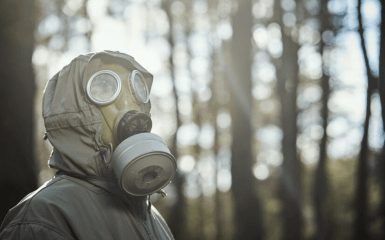The Organisation for the Prohibition of Chemical Weapons (OPCW) stated that it has no clear evidence of the use of chemical weapons in Russia's war against Ukraine.
What was discovered by OPCW regarding the use of chemical weapons in Ukraine
As noted, the information available in the OPCW Secretariat, with the help of the Russian Federation and Ukraine trying to prove the other party's use of prohibited chemical substances, does not sufficiently substantiate the relevant accusations.
However, the organization declares an "unstable situation" and recognizes the "possible" use of toxic chemicals as weapons.
Russia uses banned chemical weapons against AFU
On May 1, the US government announced that Russian troops had used chlorpicrin, a poisonous irritant used during the First World War, against the Armed Forces. On this basis, Washington introduced sanctions against several Russian scientific institutes and companies.
The ambassador of the Russian Federation in Washington called the accusations "odious and baseless". Moscow has repeatedly denied the use of chemical weapons in Ukraine. However, Russian pro-military bloggers sometimes post videos confirming gas attacks on the front.
The command of the Armed Forces previously officially reported that the Russian troops use poison gas and tear gas ammunition on the battlefield. For the most part, these are K-51 and RGR grenades, which are dropped on positions by drones. As of March 2024, 1,068 chemical attacks were recorded.
From February 2023 to April 2024, 1891 cases of applications equipped with dangerous chemical substances were recorded.
As the AFU General Staff explained, the Russians continue to use ammunition that contains dangerous chemical substances, and thereby violate the "Convention on the Prohibition of the Development, Production, Stockpiling, Use of Chemical Weapons, and on Their Destruction", as well as the laws and customs of war.



